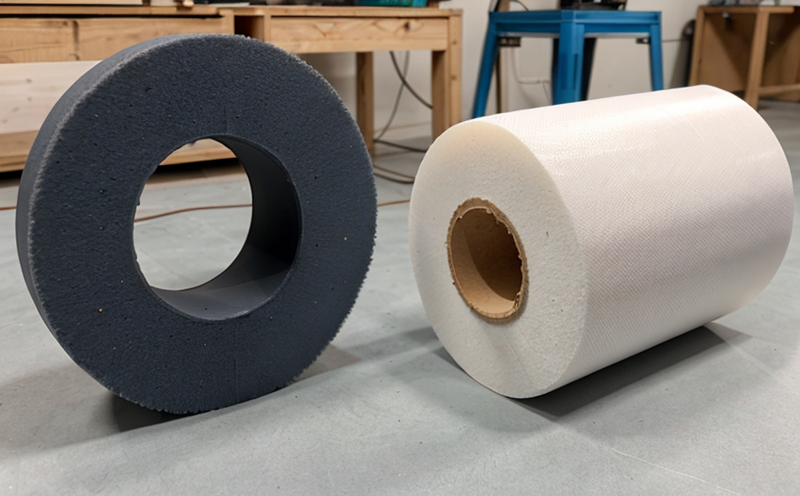ASTM D695 Compressive Properties of Plastics in Furniture Components
The ASTM D695 test method is a widely recognized standard for determining the compressive properties of plastics. In the context of furniture components, this test is essential to ensure that materials used in manufacturing are robust and reliable under compression forces encountered during everyday use.
ASTM D695 provides a standardized approach to testing samples cut from plastic parts to simulate real-world conditions. This method helps quality managers, compliance officers, R&D engineers, and procurement teams make informed decisions about the suitability of materials for furniture components.
The test involves applying controlled compressive forces to a cylindrical or rectangular specimen until it fails. The results provide data on the material's yield strength, ultimate compressive strength, and modulus of elasticity under compression. These properties are crucial in predicting how a component will perform over time, especially when subjected to repeated loads.
For furniture manufacturers, understanding these properties ensures that components can withstand stress without compromising safety or aesthetics. The test also aids in the development of new materials with improved performance characteristics, such as higher strength-to-weight ratios or better resistance to wear and tear.
The specimen preparation is critical for accurate testing results. Typically, specimens are cut from actual parts using specified dimensions and tolerances. This process ensures that the sample accurately represents the material's properties in its intended application within furniture components.
Instrumentation used during ASTM D695 testing includes hydraulic or mechanical presses capable of applying consistent compressive forces. The test setup must be calibrated to provide precise measurements, ensuring reliable data output. Post-test analysis involves examining the failure modes and recording all relevant parameters measured throughout the compression cycle.
| Applied Standards |
|---|
| ASTM D695-23: Standard Test Method for Compressive Properties of Plastics |
The use of this standard guarantees consistency and comparability across different laboratories, which is vital for regulatory compliance and quality assurance.
Applied Standards
The ASTM D695 test method is based on the principles outlined in ASTM Standard Test Method E381-07(2020) for Compressive Testing of Plastics. This standard specifies procedures for conducting compressive tests using cylindrical or rectangular specimens cut from plastic parts.
Key aspects of the standard include:
- Detailed instructions on specimen preparation
- Guidelines for applying controlled compressive forces
- Instructions for recording test data and reporting results
The methodology ensures that all tests conducted are consistent with international best practices, providing reliable and reproducible results.
Eurolab Advantages
At Eurolab, we offer comprehensive testing services for the compressive properties of plastics used in furniture components. Our state-of-the-art facilities and experienced team ensure accurate and reliable test results.
- Expertise: Our staff are trained to conduct ASTM D695 tests according to international standards, providing precise data for your decision-making needs.
- Accurate Equipment: We utilize high-precision testing machines calibrated to meet strict tolerances, ensuring consistent and repeatable results.
- Comprehensive Reporting: Detailed reports are generated based on the test outcomes, offering insights into material performance and potential improvements.
- Quality Assurance: Our processes adhere strictly to ISO 17025 accreditation requirements, ensuring that our services meet the highest industry standards.
Partnering with Eurolab ensures that you receive accurate, reliable data to support your quality management and compliance efforts effectively.
International Acceptance and Recognition
The ASTM D695 test method is internationally recognized for its reliability in assessing the compressive properties of plastics. Its widespread acceptance means that results from this test are valid not only within North America but also globally.
- ISO: While ASTM D695 is not directly aligned with ISO standards, similar methodologies can be found in ISO/TS 13477-2, which provides technical specifications for testing plastics under compression.
- ASTM: This organization's standard ensures compatibility and consistency across various sectors.
- EN Standards: Although primarily European standards like EN ISO 16958 provide similar testing guidelines, ASTM D695 remains a key reference for many industries.
The global acceptance of ASTM D695 facilitates seamless international collaboration and trade in the materials industry. Compliance with these tests can significantly enhance your product's marketability worldwide.





